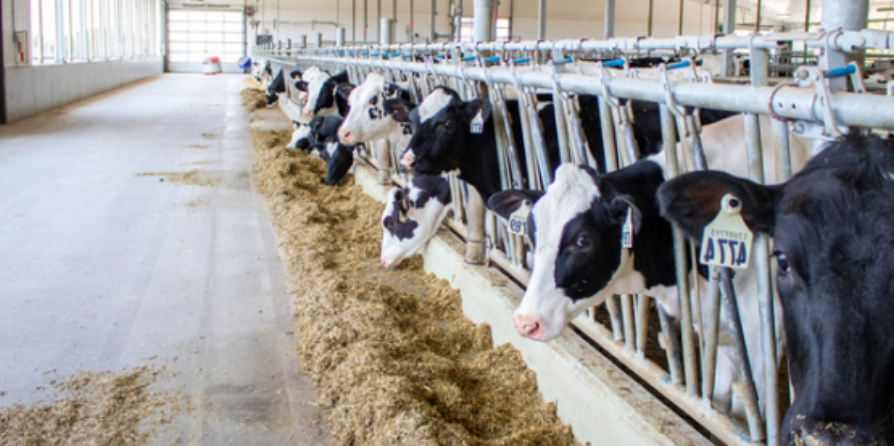University of Guelph research aims to help farmers reduce antimicrobial use in dairy herds. The researchers hope their studies over the past three years will feed into programs and policies designed to help combat the serious global problem of antimicrobial resistance (AMR).
“We wanted to understand how dairy farmers and veterinarians make decisions around antimicrobial use,” says Dr. Stephen LeBlanc, director of Dairy at Guelph – The Centre for Dairy Research and Innovation.
A professor in the Ontario Veterinary College’s Department of Population Medicine, LeBlanc oversaw the Food from Thought projects, which were led by post-doctoral researcher Claudia Cobo-Angel.
AMR caused by use or overuse of antimicrobials threatens animal and human health. As bacteria evolve resistance to medications, farmers and veterinarians need new drugs to treat disease. AMR in animals and humans is a complex relationship, but the researchers aim to reduce the use of antimicrobials to the minimum needed for animal health and welfare. The team worked with both farmers and veterinarians.
Farmers have a duty of care
Using online surveys and focus groups, the team found that farmers relied mostly upon their experience and assessment skills for treating their animals.
“The top of the list for farmers in making decisions is duty of care – a sense of responsibility for looking after the animal,” says LeBlanc. “Interestingly, cost considerations and milk production were further down as priorities.”
At the same time, farmers who are aware of AMR often fail to connect the worldwide human health problem with what they do on their farm.
“They’re uncertain about their role in the global scheme of things,” LeBlanc says. “They don’t think they overuse antimicrobials – that they only use what’s necessary and that the problem must be elsewhere.”
That perception can change.
This U of G study included a pilot project with 30 farmers who learned about AMR and recorded their use of antibiotics over a year. Many who found they used more medication than they thought were able to cut their antibiotic use considerably.
It also helped to benchmark their antibiotic use against that of other farmers.
Veterinarians challenged by AMR
Like farmers, veterinarians were motivated by caring for one animal at a time. Veterinarians also knew about AMR, but it was a challenge for them to connect a single sick cow with a global problem.
Veterinarians voiced frustration over being pulled in different directions. Even amid general expectations to reduce antimicrobial use, some farmer clients just wanted to ensure their animal was treated.
In 2018, a new Canadian regulation required all medically important antimicrobials to be prescribed by a veterinarian. Previously, farmers could buy some antibiotics at the feed mill or the local co-operative.
Still, LeBlanc says in most Canadian provinces, antimicrobial use decisions are made by individual veterinarians and farmers.
What could work
He says two of the most important elements in encouraging optimal use – also considered as antimicrobial stewardship – are strong veterinarian farmer relationships and quantifying use of products on the farm.
“While the regulation helped, we really need a push to bolster communications between farmers and veterinarians to apply the best information on balancing animal health and reducing antimicrobial use,” he says. “The benchmarking data the farmers saw in our smallscale study really helped open their eyes and support changes in behaviour.”
With a national funding proposal currently under review, the U of G team plans to look at more farms in Ontario and in other parts of Canada.
This story is a part of the 2021-22 Food from Thought Annual Impact Report


